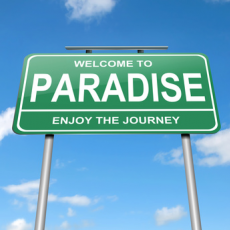
Email: reecejordan98@hotmail.co.uk
Total Article : 168
About Me:18-year-old sixth form student, studying English Literature, History and Government and Politics. My articles will broadly cover topics from the current affairs of politics to reviews of books and albums, as well as adding my own creative pieces, whether it be short fiction or general opinion.

A Utopian society, by definition, means a perfect society. But how could this happen? Can it even happen?
Humans as a species have always had this innate yearning for an idyllic environment to live in. This is mainly evident in the concept of religion, to have a total faith in a higher entity with the promise of eternal happiness, a Utopia. Atheists provide an argument against religion that outlines how it is only regimentally followed as a means to provide a comfort; to stimulate the idea that perfection is achievable through religious action. I have no quarrels with common religion in the aspect of its championing of selflessness and encouraging good moral standards. However, whether God is real or not, religion tacitly expresses and thrives off of the notion that Utopia is not feasible on Earth. If God is real, he tempts us with Heaven, a place that we would be perceive to be far greater than Earth. If he is not real, it shows that us as humans have accepted that we cannot create such a perfect society amongst ourselves and that we must therefore rely on a higher entity.
There have been attempts to establish this perfect society. The ideology of communism, in its roots, claimed to be the future of mankind, to make everyone equal and thus create a harmonious society. However, problems soon began to surface. The notion of equality proved to be incendiary; equality does not necessarily mean fairness; why should someone be paid the same wage when they have worked harder? Then the question is posed as to who should lead? Us, as humans, have always looked for leaders, something higher that we can aspire to. Centuries ago that would mainly revolve around Gods yet today, as the world becomes evermore secular, we see the rise in adoration of celebrity culture. The sentiment of equality provides no aspiration; there is no ladder to climb. Leaders under communism were oppressive and would disregard the idea of trying to create a harmonious society for the strict intractable implementation of communism. Freedom of speech was suffocated, art withered to vapidity; this was not a perfect society.
So if we cannot create a harmonious society as we are, does that then mean that it is us that must become perfect? George Orwell explores this idea in his novel ‘1984’, wherein the protagonist is conditioned into loving the oppressive system. A similar idea is shown in Anthony Burgess’ novel ‘A Clockwork Orange’. What both of these novels seek to show is that the conditioning of citizens only achieves in nullifying emotions, not rectifying a societal issue.
But what if we are wrong to assume that everyone has the same image of a perfect society in his or her mind? Some may say that the world’s society today is perfect in that perfection does not come from absoluteness but rather from randomness and diversity.
In the end it is all about perspective and opinion. For some, Earth as we know it is already Utopia.
Image Credits: singularityweblog.com

0 Comment:
Be the first one to comment on this article.